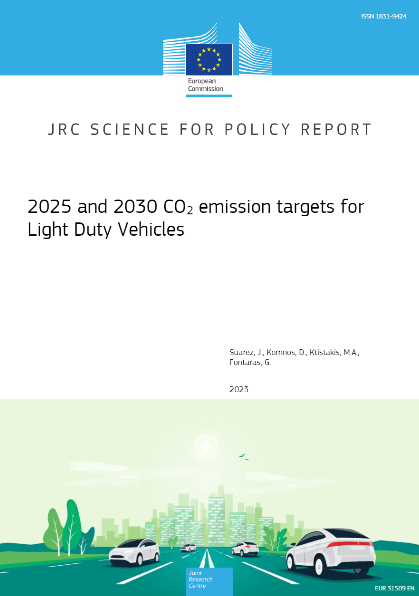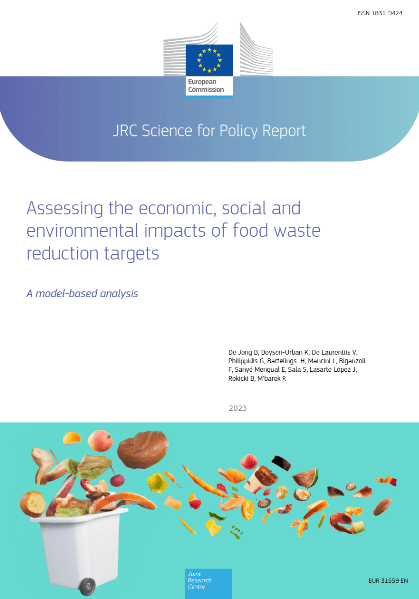
CDE Almería - Centro de Documentación Europea - Universidad de Almería
Centro de Documentación Europea de la Universidad de Almería
Cultura y Educación
Documentación comunitaria en las áreas de Cooperación Internacional Universitaria, Digitalización en el Ámbito Educativo, Espacio Europeo de Educación Superior y Patrimonio Cultural Europeo. Contiene también las últimas noticias, mediateca y boletines relacionados con la materia.
Estás aquí: Fondo Digital CDE > Cultura y Educación

Road transport is the main contributor to transport emissions of carbon dioxide (CO2) in the European Union (EU), with passenger cars and light commercial vehicles (LCVs) accounting for almost 15% of the total emissions. In order to gradually decarbonise the fleet, the EU has established fleet-wide CO2 targets for annually registered vehicles, assigning manufacturer specific targets based on their average vehicle mass. From 2025, new EU fleet-wide targets will be established applying a percentage reduction to a reference 2021 EU fleetwide target. This value is calculated from the vehicles’ CO2 emissions for 2020 and the mass and registration figures of 2021. In 2025, the reduction will be 15% for both passenger cars and LCVs, while for 2030 it will increase to 55% and 50%, respectively, following the recent adoption of the more ambitious targets. This report provides the robust method used to calculate the EU fleet-wide targets in 2025 and 2030 and the parameters that will define the manufacturers’ specific target line from 2025 onwards. The EU fleet-wide targets calculated for 2025 are 93.6 g/km for passenger cars and 153.9 g/km for LCVs. For 2030, the EU fleet-wide targets will be reduced to 49.5 g/km for passenger cars and 90.6 g/km for LCVs. The slope of the target line for 2025 will be -0.0144 g/(km∙ kg) for passenger cars and 0.0848 g/(km∙ kg) for LCVs, while for 2030 the slope will be – 0.0076 g/(km∙ kg) and 0.0499 g/(km∙ kg), respectively. An indicative 2025 average test mass of 1,609.6 kg for cars and 2,163.0 kg for LCVs, was calculated.
[Leer Más]Halving food waste by 2030 is an ambitious target of the Sustainable Development Goals, echoed by the Farm to Fork Strategy within the European Green Deal. This report offers a comprehensive evaluation of the economy-wide implications for different food waste reduction targets. The study utilizes the further adapted computable general equilibrium model MAGNET and employs a range of sustainability indicators to analyse the economic, social, and environmental impacts associated with the reduction of food waste. A bottom-up analysis based on life cycle assessment is conducted as an additional approach to assess the environmental implications of achieving the food waste reduction targets. The results show that despite income reductions in the food chain as a consequence of the declining demand, positive effects in other economic areas offset these losses. Additionally, food waste reduction is expected to yield substantial environmental benefits, as well as increase food affordability and financial savings for households.
[Leer Más]The European Commission Learning Lab on Investing in Quality Education and Training aims at developing an evaluation culture in education. It offers EU Member States (MS) tools, resources and expertise to build robust evidence on what really works in education and training in order to facilitate the design of effective policy interventions that are adapted to different contexts.
[Leer Más]- « Anterior
- 1
- …
- 32
- 33
- 34
- 35
- 36
- …
- 5.922
- Siguiente »
Noticias relacionadas
Boletines CDE
- BOLETÍN INFORMATIVO EDUCACIÓN Y CULTURA EN LA UE (Nº9)
- BOLETÍN INFORMATIVO EDUCACIÓN Y CULTURA EN LA UE (Nº8)
- BOLETÍN INFORMATIVO EDUCACIÓN Y CULTURA EN LA UE (Nº7)
- BOLETÍN INFORMATIVO EDUCACIÓN Y CULTURA EN LA UE (Nº6)
- BOLETÍN INFORMATIVO EDUCACIÓN Y CULTURA EN LA UE (Nº5)
- BOLETÍN INFORMATIVO EDUCACIÓN Y CULTURA EN LA UE (Nº4)
- BOLETÍN INFORMATIVO EDUCACIÓN Y CULTURA EN LA UE(Nº 3)
- BOLETÍN INFORMATIVO EDUCACIÓN Y CULTURA EN LA UE (Nº 2)
- BOLETÍN INFORMATIVO EDUCACIÓN Y CULTURA EN LA UE (Nº1)








